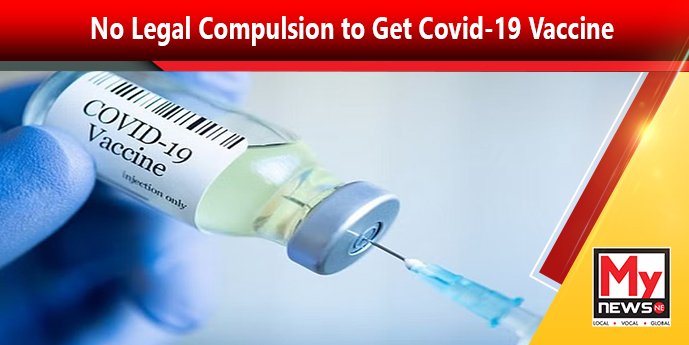Centre to SC: No Legal Compulsion to Get Covid-19 Vaccine
Guwahati: The Center made it clear to the Supreme Court that receiving a Covid-19 vaccine was not legally required.
The Centre argued in an affidavit submitted to the Supreme Court that the idea of informed consent does not apply to the voluntary use of a medicine like a vaccination.
“While the Government of India strongly encourages all eligible persons to undertake vaccination in public interest, there is no legal compulsion for the same,” the affidavit read.
The Centre responded to a petition that was submitted by two parents whose children reportedly died as a result of COVID vaccine adverse effects.
Adverse Events Following Immunization (AEFI) can result in physical harm or death. If this happens, the vaccine recipient or their family may be entitled to legal recourse, which may include filing a lawsuit in civil court to recover damages or compensation for negligence, malfeasance, or misfeasance.
“Such claims may be determined on a case-to-case basis in an appropriate forum,” the Centre said further submitting: “there is no material evidence to suggest how the State can be fastened with strict liability for the tragic death of the respective children of the petitioners which is the requirement in law to sustain a claim for compensation against the State under Article 32 of the Constitution.”
On the other hand, the Union Government asserted that the facts contained in this affidavit demonstrate the Government of India’s significant efforts to provide a secure National COVID-19 Vaccination Program.
The Center further stated that the Ministry of Health and Family Welfare (MoHFW) and the vaccine’s producer both make information on the COVID-19 inoculation readily accessible to the public.
Every vaccine in the world has been associated with adverse events, just like a drug might have side effects. The government asserted that once a vaccine recipient, who has access to all relevant information, voluntarily chooses to enter a vaccination centre and receive vaccination, the issue of a lack of informed consent is no longer at issue. Instead, the government said that a vaccine beneficiary always has the option to access even more information about the vaccine and its potential side effects from the health workers at the vaccination site or their doctor before making an informed decision on their own.

